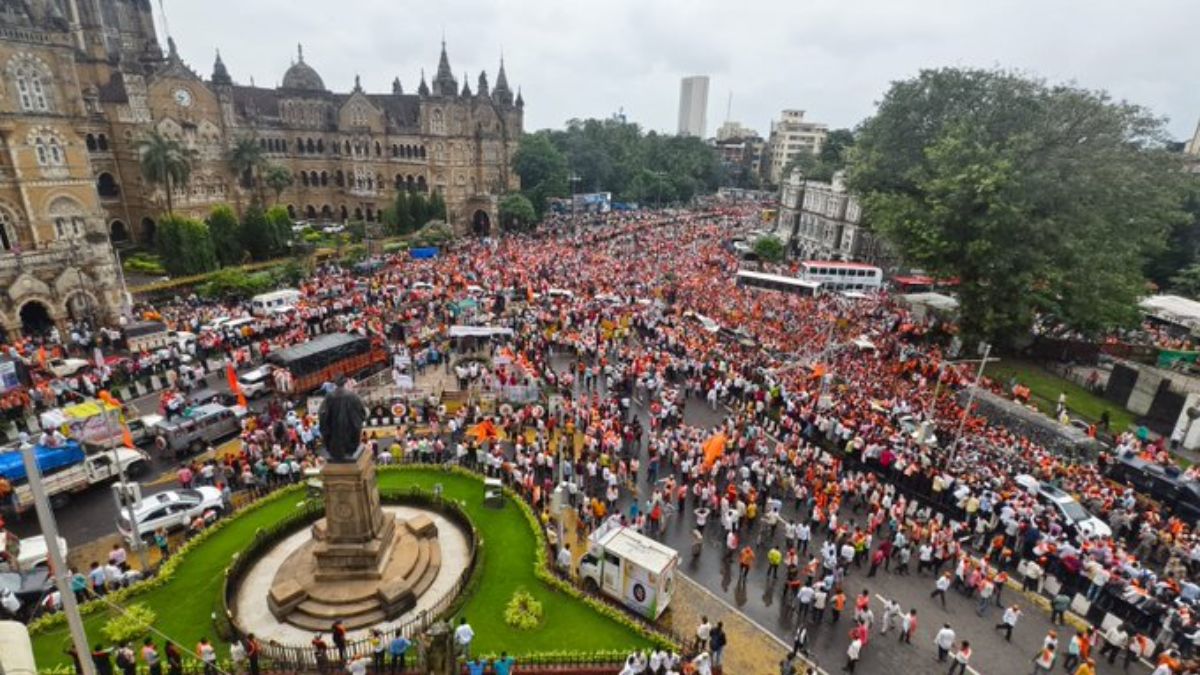Maratha quota activist Manoj Jarange-Patil has once again become the center of Maharashtra politics, with his ongoing hunger strike and large-scale protests in Mumbai putting the state government under immense pressure. His demand for Marathas from the Marathwada region to be recognized as Kunbis, thereby becoming eligible for reservation under the OBC category, has reignited the quota debate.
On Friday, Jarange-Patil’s convoy of vehicles carrying thousands of supporters caused major traffic jams across Mumbai during the Ganpati festival, reflecting the scale of support he commands. His agitation, which has seen marches and sit-ins far exceeding permitted numbers, has forced the government into a tight spot. Chief Minister Devendra Fadnavis has said the state is working within the constitutional framework to resolve the issue, while Deputy CM Ajit Pawar indicated a positive stance on Maratha quota demands.
However, Jarange-Patil has dismissed the committee led by retired High Court judge Sandeep Shinde, accusing the government of delaying tactics. On Saturday, he rejected the committee’s appeal for more time, insisting on an immediate government resolution declaring all Marathas in Marathwada as Kunbis.
The rise of Jarange-Patil
A farmer-turned-activist from Jalna district, Manoj Jarange-Patil shot to prominence in 2023 when he spearheaded a massive protest demanding Maratha reservation. Known for his non-political stance, he has built his credibility through grassroots mobilization, hunger strikes, and village-level outreach.
His demands go beyond OBC recognition — they include withdrawal of police cases against protestors, compensation and government jobs for families of those who lost their lives in earlier agitations, and immediate issuance of caste certificates based on historical records.
Why he matters now
Jarange-Patil’s ability to draw mass support from rural Marathas has unsettled the BJP-led Mahayuti government. His campaign has not only highlighted the growing frustration within the community but also created a political dilemma ahead of upcoming elections. For the state leadership, the question is no longer whether to act on Maratha quota demands, but how fast.


